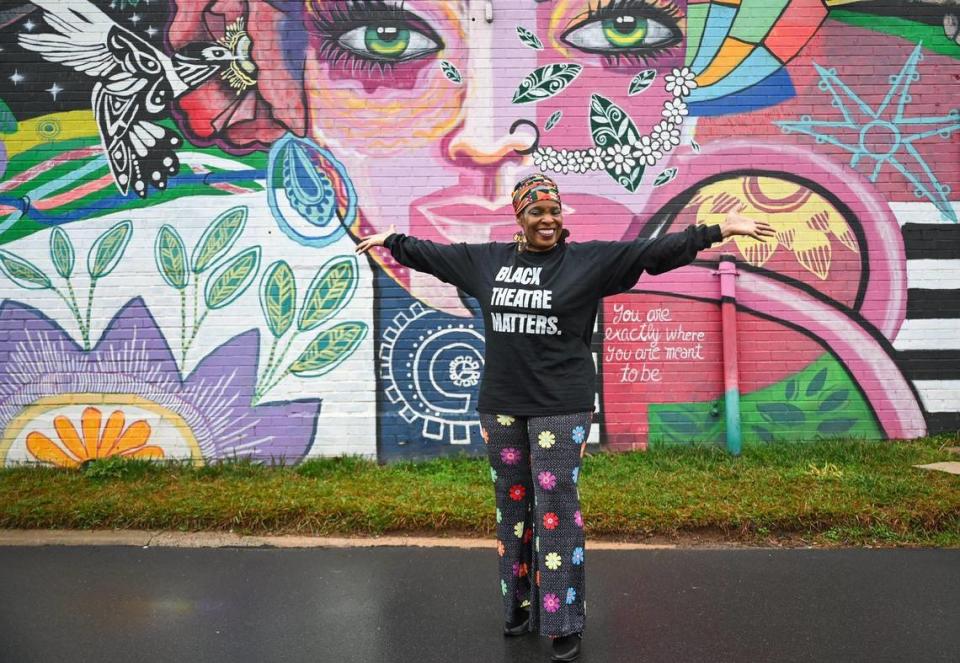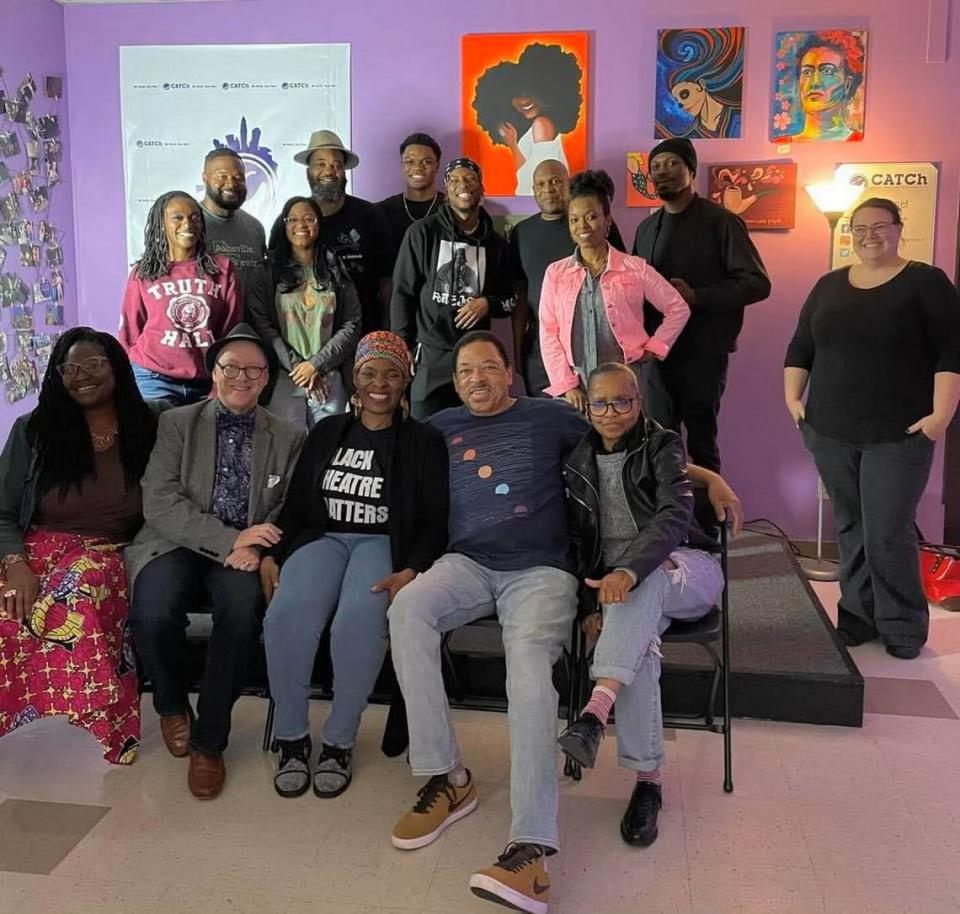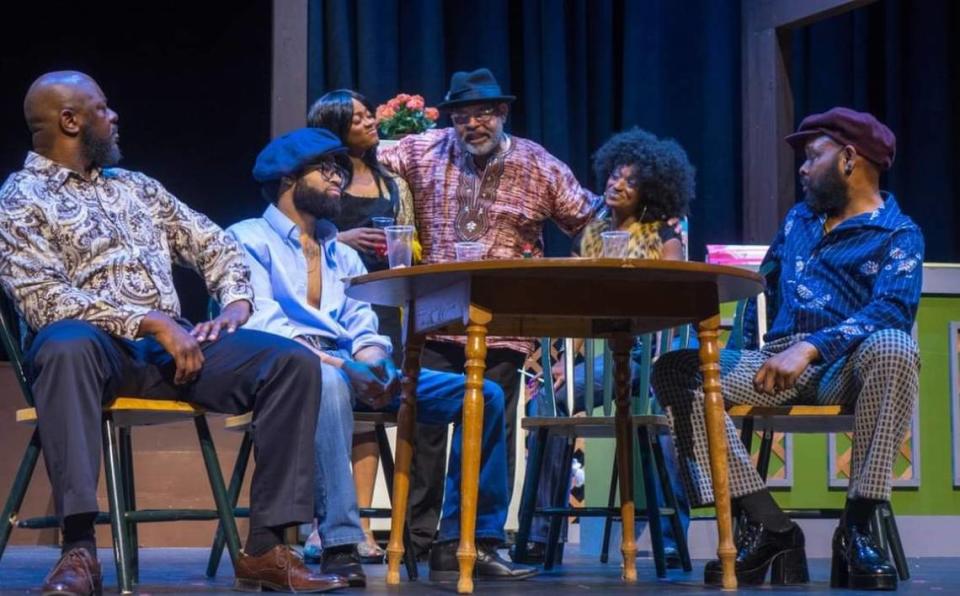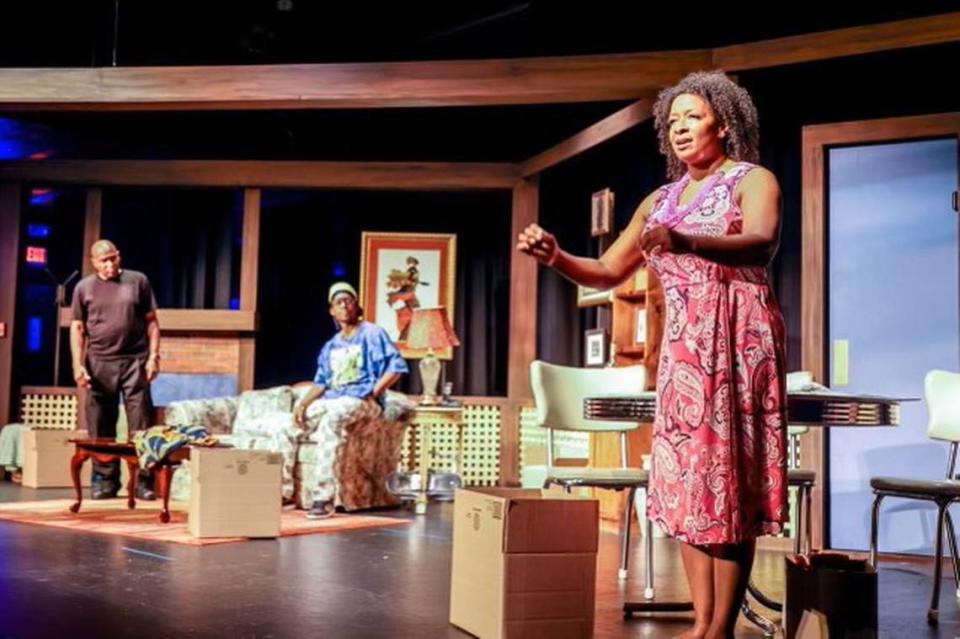Meet the Charlotte woman championing opportunities for other Black playwrights
When Vickie L. Evans was 9 years old, she started writing as a way of escape.
Growing up south of Houston in Sugar Land, Texas, she had a difficult home life, where, she said, her late father had abused her mother.
“In that little town there was a lot of domestic violence, so I didn’t have a support system because most people were experiencing the same thing.” Evans said. “Writing was my therapy. I started writing poetry to escape from that situation.”
Her writing is among her life experiences that led Evans to where she is today: a 64-year-old Charlotte playwright, the director and founder of the African American Playwrights Group and co-creator of the BIPOC Playwrights Festival. Last year, Metrolina Theatre Association named her the 2023 Theatre Person of the Year.
“I am so honored that this community is noticing the work I’ve done for 16 years,” Evans said. “To be seen and recognized, that was huge.”

On a path to ‘my destiny’
Back when Evans was a high school senior, her mother summoned the nerve to take her only child and skip town toward safety. “We fled Texas like fugitives in the night,” said Evans. They hopped on a plane for Washington state, where Evans had an aunt.
Just after high school graduation, Evans married a military man, which led to two decades of adventure and lots of moves.
From Washington state, they moved to Germany when Evans was just 19. “I was still very green,” she said. “Being in Germany taught me how to live on my own, to grow up and discover my gifts.”
Other stations followed — back to Texas, then to Virginia, where they lived outside of D.C. for nearly 20 years stationed at Fort Belvoir. “The military opened so many doors for me,” said Evans. “It really led me to my destiny.”

In 1990, she wrote her first play, “Christians Don’t Act Like That!” But raising her three children and holding down jobs — she worked for the CIA as an executive assistant and computer assistant, and further studied computer programming — took up much of her time. She also eventually got divorced.
In 2006, she felt the pull of the theater world once again. Inspired by the true story of a Tennessee woman who fatally shot her husband, a pastor, and had alleged abuse, Evans wrote “A Change is Gonna Come.”
The next year, Evans presented the play to a sold-out crowd at the George Washington Masonic National Memorial, and later at the Lincoln Theatre in downtown D.C.
An inclusive vision for Black playwrights
In 2009, Evans left Virginia for Charlotte in search of something new. Shortly after arriving, in 2010, Johnson C. Smith University produced “A Change is Gonna Come.”
Yet something struck Evans as odd.
When she had lived in D.C., Evans had started a theater production company, Soaring High Production, to showcase and support local talent. “Some didn’t have the education, some were not connected, and most had Broadway aspirations,” she said. “There was so much talent and they were not getting opportunities.”
In Washington, she said, there were an abundance of theaters. In Charlotte, she added, “you had this slew of theaters, but it seemed like the African American community wasn’t being promoted, or didn’t have opportunities to hardly produce plays in any of those” venues.
So Evans decided to do something to boost the exposure for Black playwrights and also work to produce their work in Charlotte’s mainstream theaters.
In 2019, she created the African American Playwrights Group. It meets monthly and features industry professionals sharing knowledge and support.
“I did everything by trial and error. But they’re getting those opportunities, because I bring in folks who can say to them, ‘Here’s how to write a script,’ ” Evans said. “And they’re getting education as well as support and avenues for finances and budgeting.”
During COVID, the group started meeting online, which opened up the project to writers from California to New Jersey, Florida and other states. Today, the group is made up of about 25 playwrights nationwide.
Noting that one of its original members had presented a work recently at the Booth Playhouse, Evans said, “Before, they didn’t get the opportunities to plug into these mainstream theaters. Now I’m thinking, ‘Oh, this was great.’ That was my vision now coming to fruition.”

A new partnership for BIPOC playwrights
At the 2019 North Carolina Theatre Conference in Greensboro, Evans saw she was one of the few African Americans at the event.
“I stood up and made a comment about the lack of diversity and inclusion for people of color in our theater communities,” she said.
The next year, while on a Zoom call with the Metrolina Theatre Association, Evans spoke up again. This was in the wake of George Floyd’s killing by Minnesota police. “Everything was about diversity and inclusion then. It was the buzzword,” Evans said. “So I started talking about actually wanting to see diversity and inclusion, not just talk about it.”
A Matthews Playhouse administrative manager was on the call that day. “She went back to the executive director of Matthews Playhouse and requested that she set up a meeting with me to discuss how we could bridge the gap,” Evans said.
That partnership led to a festival aimed at uplifting playwrights who identified as Black, Indigenous, or people of color (BIPOC)
In its first year, 2021, the BIPOC Playwright’s Festival received 19 submissions. A panel of judges whittled it down to four semi finalists. The winner that year, Coolidge Harris II, received a free, fully mounted production of his play, “Greenwood,” at Matthews Playhouse.
That play shared the story of the 1921 Tulsa, Oklahoma, racial violence that destroyed an affluent Black community. Last year, Rory Sheriff, founder of BNS Productions, took home the top prize for “Speakeasy,” inspired by his family and neighborhood while growing up in Reading, Pa., in the 1970s.
On March 1, the African American Playwrights Group hosted a 10-Minute Play Festival at uptown’s Stage Door Theater, where seven playwrights presented partial original works followed by talk-backs.
“I feel like a mother who’s birthing a child,” Evans said. “It took 10 years for me to establish the AAPG. So to see it come to fruition, and to see it still being carried out, makes me proud.
“Sugar Land is very small, and some people there have never left Texas,” she said. “For me to blossom in a way that gave me the rare opportunity to display who I am, it blows me away. I really know my purpose on earth and I know who I am.”

More arts coverage
Want to see more stories like this? Sign up here for our free “Inside Charlotte Arts” newsletter: charlotteobserver.com/newsletters. And you can join our Facebook group, “Inside Charlotte Arts,” by going here: facebook.com/groups/insidecharlottearts.

